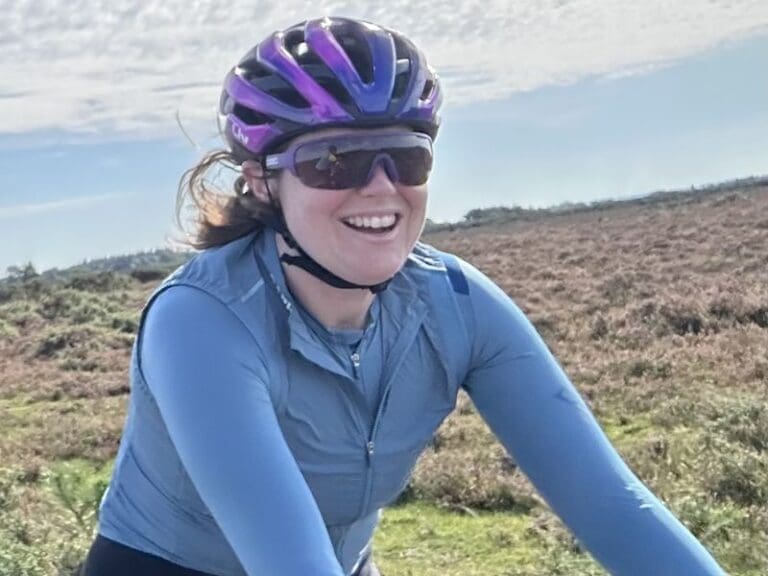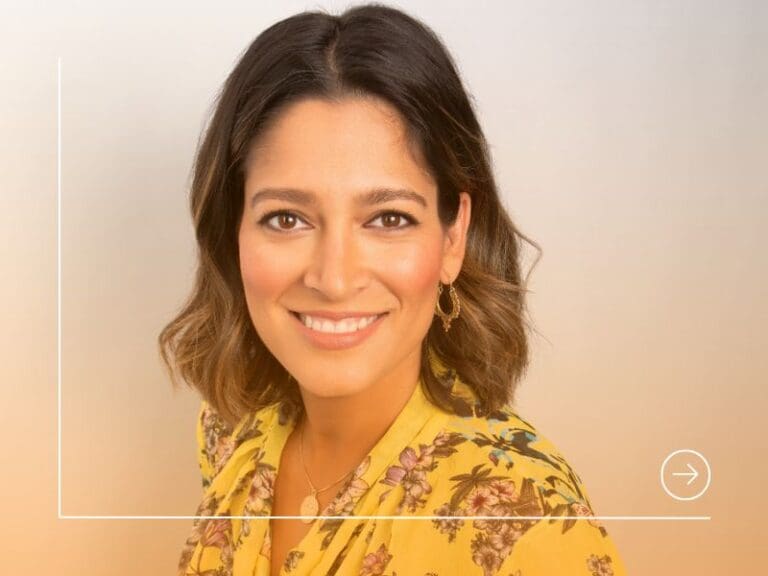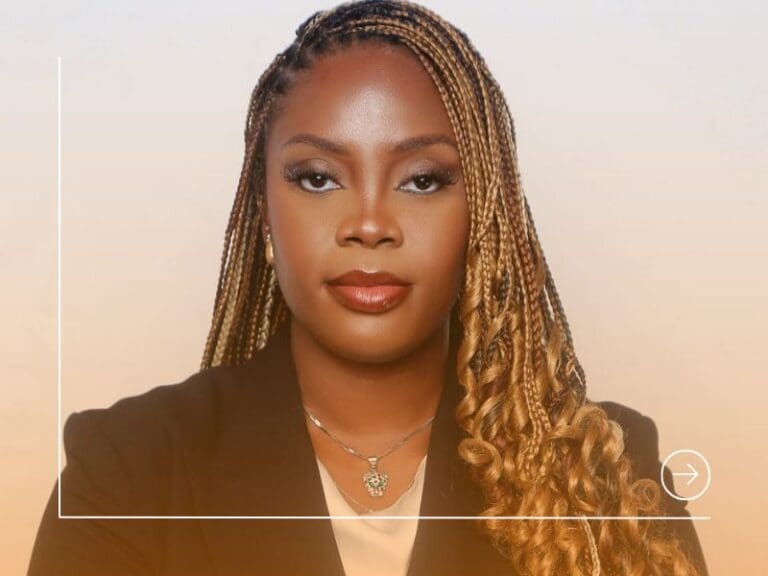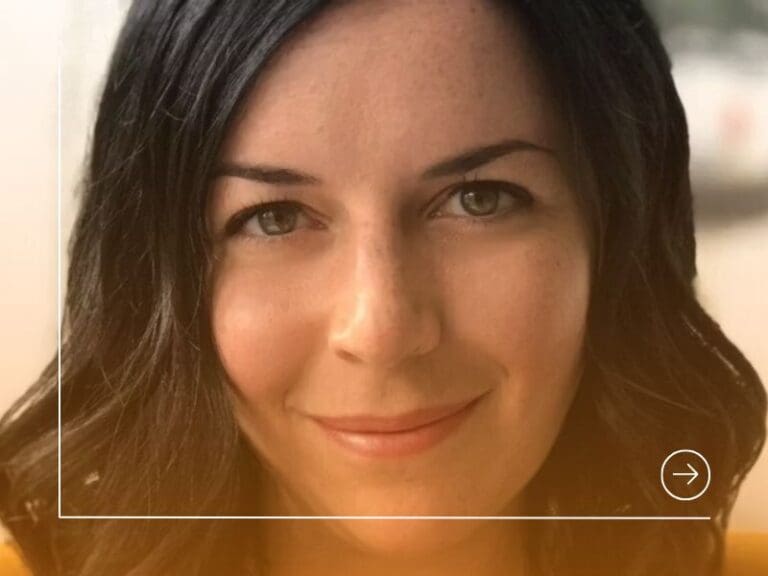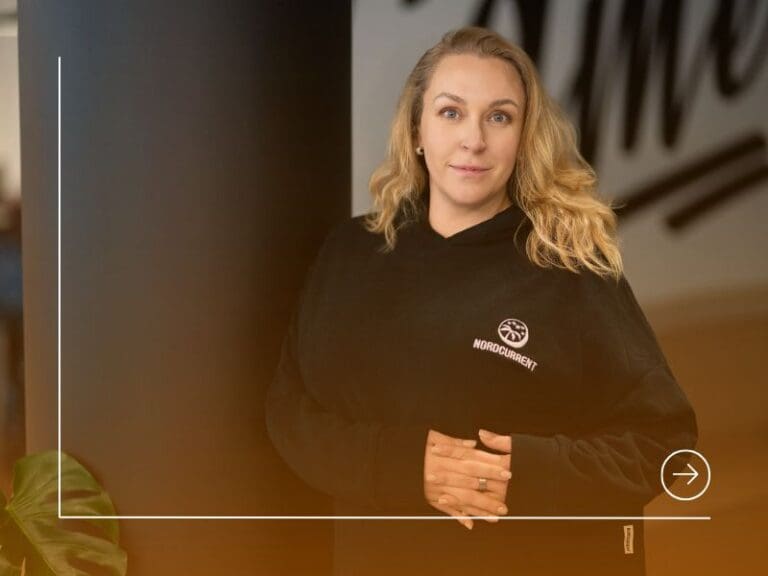Jo started out with a chemistry degree at the University of Southampton and spent her early career as a scientist, doing a PhD and a stint as a postdoc.
During this time Jo worked at the interface between the life sciences and the physical sciences, mostly on lipid-DNA structures and droplet microfluidics. From there she has had a range of different roles, starting with widening participation at the University, moving through to interdisciplinary research management; key themes for these roles have been technology transfer, value generation, and public engagement.
In 2020 Jo joined Ordnance Survey to work on developing new value from solving government problems, and in 2022 she took on leadership of this function whilst jointly studying for an MBA. This summer she switched lanes slightly to take on the problem of generating insight from the vast amount of information OS gathers from and about its customers.
How did you land your current role? Was it planned?
Not at all! This role came out of a restructuring of the business at OS, and a really challenging time for me personally as I lost my lovely mum in the middle of that. It was quite difficult for a time there, but an opportunity presented itself at pretty much the eleventh hour. I had expected to leave the business this summer, and was interviewing externally, but a bit of cosmic timing and a role that is a really good fit for my natural skillset means that I was happy to stay for longer with OS.
What are the key roles in your field of work, and why did you choose your current expertise?
This is an interesting question because it suggests that I’ve had a career plan. I actually haven’t! I have a real love of learning, and so have spent my working life looking for opportunities for personal and professional growth, and that has ended up involving a bunch of side steps. For example, at the University, I did three separate roles at the same grade before being promoted. This gave me a really broad range of experience and understanding, especially of different technical areas, that I was able to leverage when I moved to OS. At OS I did a fairly conventional step up when the opportunity arose, and that provided me with an intense opportunity for growth, but on completion of my MBA at the end of last year, I was looking to flex my learning again. I’ve taken another side step career wise for a role that has less team leadership responsibility and puts me back into the doing, which is perfect for me right now. So the short answer would be that I’m a big fan of the side step and of breadth.
Did you (or do you) have a role model in tech or business in general?
I have had some really good role models at various points in my career – my first experience of computer code was with Prof. Syma Khalid, who agreed to take me on as an inexperienced pair of hands during a PhD secondment – I worked on comparing experimental and simulated results for lipid and DNA systems using coarse-grained molecular dynamics; Syma has gone on to be a leading authority in computational chemistry, especially in simulation of microbiological systems. I’ve also been taught by and worked alongside Prof. Gill Reid, former President of the Royal Society of Chemistry and recent CBE recipient for services to Chemistry and Diversity. Both are total powerhouses when it comes to pioneering the role of women in STEM fields. When I joined OS I overlapped with Lisa Allen who is the current chair of DAMA UK, and learning from her was a great career highlight. Alongside these women who are notable in their own right are an army of strong female role models who have risen alongside me, and have been enormously important to my growth. My husband Ali also has great rockstar energy, and ploughs it into his drug discovery startup.
What are you most proud of in your career, so far?
I’m the first in my family to go to university, and I’ve now amassed three degrees. I was able to make the jump from BSc to PhD without a Masters (I’m not sure that’s possible now), but that meant that I received my PhD when I was 25. I was able to begin my MBA on an apprenticeship, otherwise I don’t think I would have been able to do one at all; I’m quite sad that the apprenticeship route looks to be on its way out now. Studying at Henley felt like a real privilege and I met some amazing people on my course, but completing that degree alongside full time work, and raising two children was really tough. But I don’t think it’s the big things that I’m most proud of – it’s that I’m known for being tenacious when solving complex problems, and developing a reputation for getting things done. When I returned to OS in this new role the positivity from my colleagues was truly awesome, and that was such a lovely feeling.
What does an average work day look like for you?
Right now I’m in current state versus future state mode, so it’s a mixture of thinking time (which is a luxury that only really happens when you’re starting something new), reading around the various topics (e.g. today I’m reading our new data governance policy to work out how it applies to this programme), and fitting the puzzle pieces together. I recently created an agentic tool for mining our customer data, and I’m demoing that to various stakeholders, along with instructions to try breaking it.
Are there any specific skills or traits that you notice companies look for when you’re searching for roles in your field?
I spent some time job hunting earlier this year, and I think it’s just a really tough market right now. There are lots of jobs available, but lots of people looking also. I had a handful of interviews (from a much larger set of applications), and most of the time the story was ‘we think you’re great but we liked someone else more’. That was tough, and if that’s happening to you right now, I’d just like to say it’s not you, this is just a really difficult time to be looking for a job. This isn’t helped by agentic screening – sometimes the rejection came mere minutes after hitting submit!
That said, when I’m hiring I usually try to hire for diversity of thought – I take a look at the team that I have and work out what skills I want the new person to bring to enhance what we offer. I think being able to articulate the ‘so what?’ of your skills is important – what is the difference that you make when you do what you do?
Has anyone ever tried to stop you from learning and developing in your professional life, or have you found the tech sector supportive?
I think that being a woman in the tech space it would be unusual if I didn’t have stories like this. They’re mostly exactly what you would expect, things like struggling to get that next step up whilst I had young children, or struggling to be taken seriously alongside male candidates of equivalent experience. There is this phenomenon that seems to happen in your 30s, when people are “settling down and having babies” – and men get a career boost at this time, because they are seen to be ‘serious’ and ‘settled’. This has been covered in the literature and trade press many times, and is a recognised thing, and is also prominent because women are more likely to be working part time at that point in their careers. At OS, I’ve had some fantastic learning opportunities – being supported through the MBA was amazing for my personal growth, during which I gained deep understanding of how businesses operate, and researched how socio-economic background in childhood affects employee experience of organisational culture. I have had plenty of opportunities to learn, but I’ve had to fight for them.
Have you ever faced insecurities and anxieties during your career, and how did you overcome them?
Only always! I’m pretty hard on myself and have high standards. Sometimes this means that I make a task bigger than it needs to be, and so it feels like I can’t do it (this happened just a couple of weeks ago!). Like most women, I’ve also suffered with imposter syndrome, particularly when doing something new. I usually try and recognise and rationalise it; I’m a big fan of Eddie Obeng’s project types so try and use those to orient my work – knowing what to do next helps me step forward. I also had a manager a very long time ago who would use the mantra ‘good enough is good enough’, so I try to ask myself: is this good enough? It almost always is. The final thing is, deliberately doing the thing that I’m scared of – facing into it. I do my very best work just outside of my comfort zone and I actively seek those opportunities.
Entering the world of work can be daunting. Do you have any words of advice for anyone feeling overwhelmed?
Try to work out exactly what it is that you’re afraid of – what is the specific step that is stopping you, and then break that down. Do things one step at a time. When I returned to work this summer, it was after having almost four months off because my mum had died very suddenly and I needed some time to work through that. I was returning to a new role and a new team, and I was unsure how people would respond – I had all sorts of anxieties about walking in on that first day, but it was a really great day. Often the fear of doing something is so much worse than actually doing it.
What advice would you give other women wanting to reach their career goals in technology?
I think you need significant self-belief (if you don’t believe in you, who else is going to?), and I think you also need a clear understanding of what you offer. That is really challenging for someone like me, who is a generalist, especially when there are so many specialists around. As a career squiggler I don’t necessarily subscribe to the idea of a fixed career path, but I do think you need to know a general direction, and how a particular step is additive to your story. Don’t dismiss the side-step as it’s an awesome way to develop, and don’t be afraid to jump fields if the landing spot makes sense. Look after your network, and join in with things – locally we have a really great chapter of Women in Tech, and I’ve made many great connections there.


